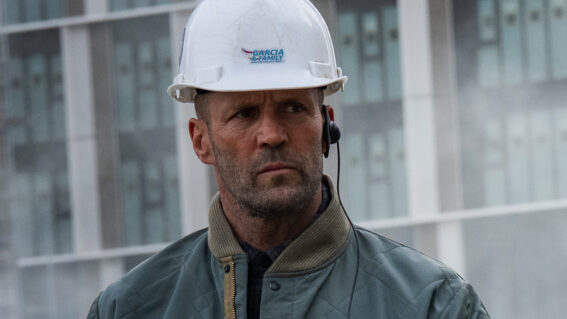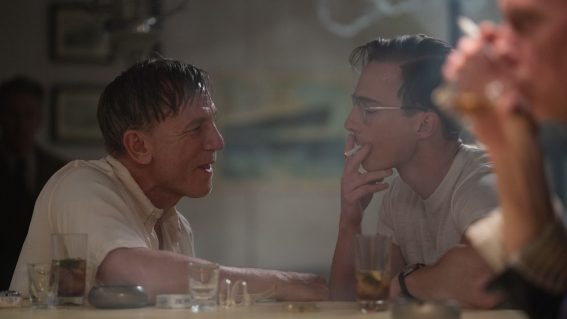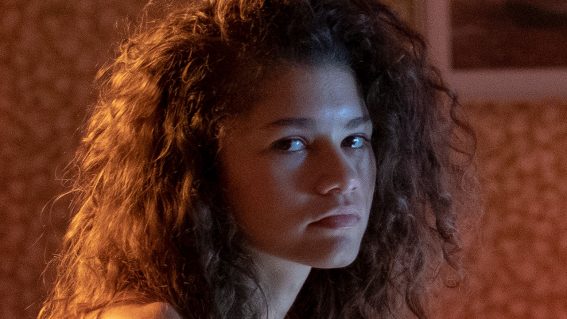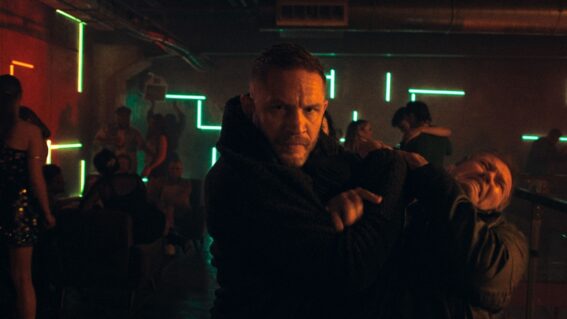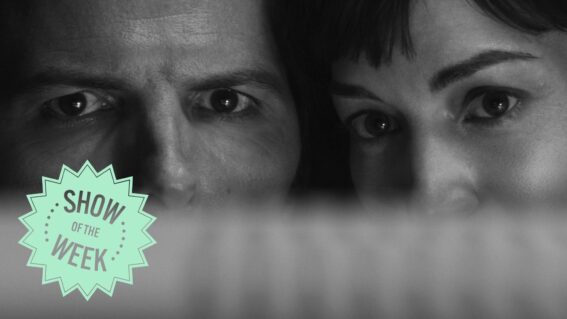Interview: ‘John Dies at the End’ director Don Coscarelli
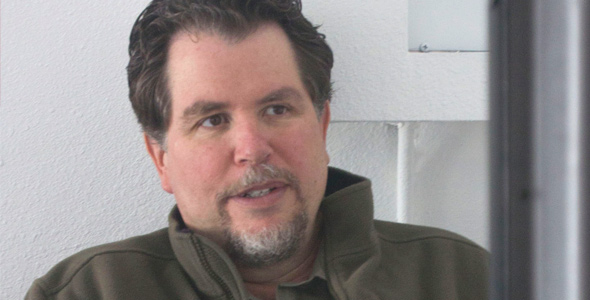
A bona fide genre filmmaking legend, director Don Coscarelli is the man behind the much-loved Phantasm series, The Beastmaster and the acclaimed Bubba Ho-Tep, starring Bruce Campbell as (probably) an elderly Elvis Presley. He brought an extra dose of weirdness to the screen with the amazingly-titled John Dies at the End (out on DVD and Blu-ray December 5th). Based on a crazy-ass book by David Wong, his film revolves around a drug that promises an out-of-body experience with each hit. On the street they call it Soy Sauce, and users drift across time and dimensions – but some who come back are no longer human and soon a silent otherworldly invasion is underway. Only John and David stand in its way, and guess what happens to at least one of them?
We’re stoked to be holding a one-off screening of the film on Wednesday Dec 4th, and to have gotten Coscarelli on the phone to talk about his film.
FLICKS: ‘John Dies At The End’ hits home video here very shortly. How do you feel about the film coming straight to home video? For me and many other people it’s how we found your earlier films and dug them. Do you have a problem with your movies bypassing cinemas?
DON COSCARELLI: Well obviously I’d prefer to follow the traditional release path but times are really changing quite a bit. In the States they did a completely different type of release, where they went into the video-on-demand sphere, then after that they went to theatres and then after that, streaming, and then to video. So the world’s changing a lot in that respect. I will tell you that back in the ‘90s a couple of my later Phantasm films went on the direct-to-video path and at that time direct-to-video was less than optimal. I don’t know. The way folks are getting their media nowadays, they seem to accept it and celebrate it however they get it. I guess it’s alright.
The funny thing is, when you’re working through post-production you have to take into account how most people are going to consume the film so a lot of times we’d make a lot of effort to make sure it looked great on the big screen, yet maybe 95% of the folks are gonna watch it in home theatres. Times are definitely changing in that regard.

You haven’t had the most prolific recent period of filmmaking. Does it feel like every time you come to make a film that the landscape’s changed dramatically?
Certainly the time span between my last film and Bubba Ho-Tep… technically things have changed dramatically, and obviously the movies are released differently. That is an interesting part about it, but you know what? I like to think that I’m forward thinking and open to new things and so it’s OK. I’m a big technology geek and I’m constantly experimenting with new things in terms of cameras and styles and effects and things like that, so it’s exciting to be able to use these tools.
The place where I honestly get my regret is “wow I wish I had these tools when I was making my student project films!” because you can make some pretty sophisticated movies now with just off-the-shelf software.
One thing that is really evident in ‘John Dies At The End’ is that your spirit of utilising technology throughout your career of genre filmmaking is still very much alive. With the absolute batshit craziness of the plot and the number of mental things that happen, you’ve managed to shoehorn a massive amount of effects and insanity into the film. It must have been super fun to put together.
Absolutely, and thank you for that compliment. That is wonderful that you said that. I guess I’ve got an oddball sense of humour in the things that I like. Unfortunately, the down side is that so frequently I’m working with very limited means and a modest budget. A lot of times I’m more ambitious than I really should be and so I have no idea how to execute some of the visual effects in the film and I have this blind optimism; “oh, we’ll figure out a way to do it. We can make this work.” Cos the way it reads on the page was so fun and if it was done right it could look so cool yet sometimes I… I might have exceeded my grasp during the film. But what’s nice about making a film that’s different and insanely strange, sometimes you don’t necessarily have to have the most polished effects to still have the audience appreciate and enjoy the movie.
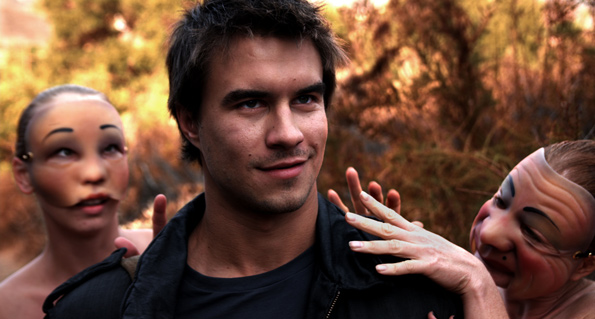
Exactly. You’re not relying on one photo-real effect every 15 or 20 minutes seamlessly blending in amongst a human drama . If you’re on board with this film, you’re gonna be 100% on board. It’s a really black and white proposition I think.
I think you’re right. I’ve just decided to approach it as an intelligence test. The smart people get the movie and the ones that don’t, well… I don’t think I care. The movie requires that one takes some leaps of faith. Let me tell you an interesting thing about my earlier films, especially when I was younger when I made the first Phantasm, which was The Never Dead down under. That was a movie that took a lot of leaps of logic and required an audience to be on their toes and an audience to do a lot of thinking about it.
The other day I was watching a movie, which was a very challenging film that I watched when I was growing up and I was thinking about his other films… I watched The Cars That Ate Paris by Peter Weir last week and I was thinking what a challenging attitude that was. And I started to think, you know, during my formative years I watched a lot of Weir’s films, from Picnic at Hanging Rock to The Last Wave – I should say his early films – and his movies, they did not explain everything at all. They really posed questions; they posed mysteries and asked the audience to think about them after the movie was over. I think I picked something up from those by osmosis. Thinking back how the film Phantasm really requires you to think about it, I think that with John Dies… it’s a similar type of a thing. Not every question is answered and there’s a lot of mystery there.
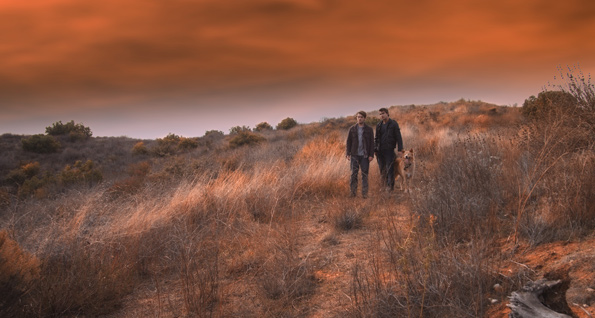
I think you’re dead right and unfortunately that requirement, to hold the audience’s hand, is seen more and more in films these days.
Well it certainly is in the major, big movies mostly. 80% of them anyway. Every once in a while something a little challenging slips through. But you know, that’s the beauty of working on a modest budget because you can get a few things right. If certain markets work then the movie can recoup. I think that might be the inherent problem with the larger budget movies, they just cannot take a risk. The whole studio can go down if one of those bigger movies didn’t work financially.
This must be difficult as a filmmaker, but from an audience point of view those modest budgets have really good results. Because of the pressure it puts you under as a filmmaker, the pressure it puts your crew under to solve those practical effects problems, the results can be really entertaining films.
I think there’s something there, and also the joy of discovery. If there’s something outside the mainstream it’s certainly something you want to share with your friends, which really works well with genre especially, and particularly in terms of horror and what have you, because so frequently we see a movie that has something really strange or really special or something scary and the first thing you wanna do is run out and show your friends and re-experience it through their eyes. Probably why I’ve always… well, certainly in later years, I’m happy I can make a living in the genre because there’s a very passionate fan base out there and when folks find a movie they can rally around it’s really wonderful.
Your position – sitting outside the mainstream – that’s been consistent throughout your career. Does it still feel the way it did at the beginning?
I guess as I get older I’m possibly just more comfortable with it. The first film I had any success or notoriety with was Phantasm. I found quickly, in terms of getting funding for other movies, all the money that was really available to me was for other genre-type projects. The truth is I have a wide array of interests and frequently am working on projects outside of this little domain and have yet to get one of them funded, which is frustrating. But then at the same time it’s exciting to know you do have a fan base you can make movies for. The support I have received through the genre press and sites through the years has just been fabulous.
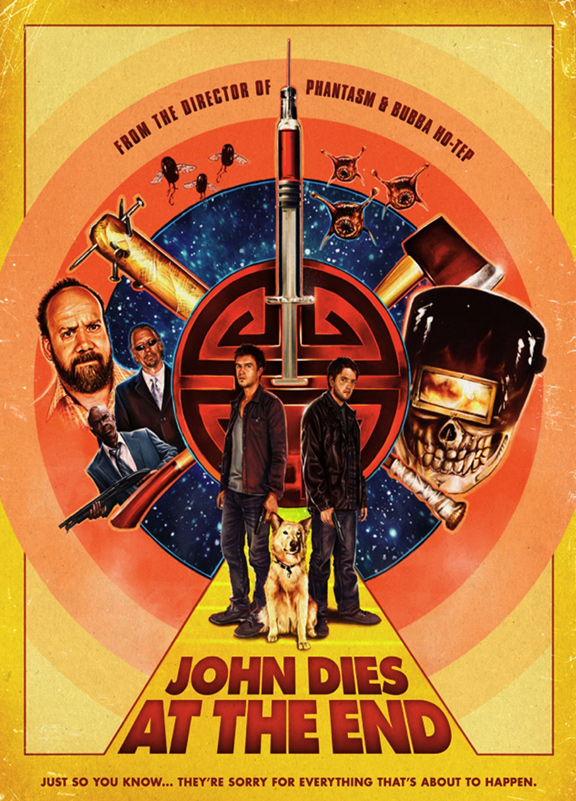
For me personally, John Dies at the End is a film I’ve been looking forward to since I first heard about it – from the title alone. That’s before I knew you were directing it, before I knew anything about it. It was like “that sounds fucking awesome!” When you came across the story, what got you excited about it?
First off I read the title and I was just like you, I had the same response. I thought, this is the most exciting title I’ve ever heard because the author dares to give away the whole story in the title which means there must be something more underneath. I got an email from a robot that told me if I liked this other book that I purchased on Amazon.com then I was gonna like John Dies at the End. It turns out this robot was right. When I read about the storyline, about a street drug called Soy Sauce and inter-dimensional travel and all that stuff, it just sounded great. Then I read the story and it was brilliant. The guy’s name is David Wong, the author, he’s just a crazy genius and his talent was just so evident, the way he writes dialogue in the book… It was just a challenge as to how to shoehorn the big book into a smaller movie
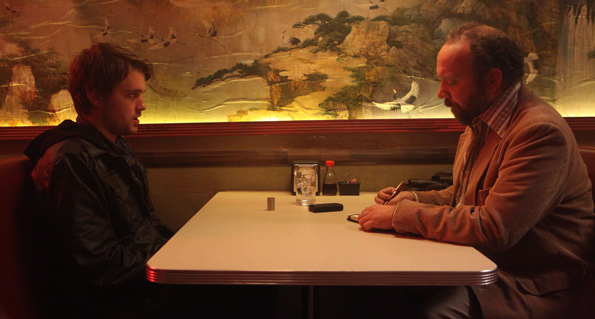
Even just what we see on screen must have been a massive challenge without leaving stuff out.
Yeah there was quite a bit, but you know, of lot of the stuff I left behind was material that was impossible to film on our budget. There was just no way so… What I did was I tried to keep the great stuff that I had the means to put on the screen.
I love that you say there was stuff you had to leave out because you couldn’t put it on the screen, yet there was a man made out of meat in your movie.
Well thank you. That was something that had to be on the film, I had to figure out a way. I struggled with it for a long time because I was thinking the only way to do it was some kind of digital construct and then the more I looked at it I thought, well that’s not gonna work because the actor has to be grabbed by the sausage links that are wrapped around his head and he’s gotta be up close to it and you can’t put an actor up close to a digital man cos it’s gonna look bogus. So then one of my pals did a sketch of what he thought the meat monster should look like and I thought, ‘Oh! We could put a man in a suit!’ And so we got this wonderful costume built by Robert Kurtzman; this thing’s like a work of art, it’s quite beautiful. So we had a live meat monster to work with. There’s a lot of stuff on that suit that you can’t see on screen, which is very frustrating. One of his arms is an entire ham with pineapple on it, it’s just amazing.
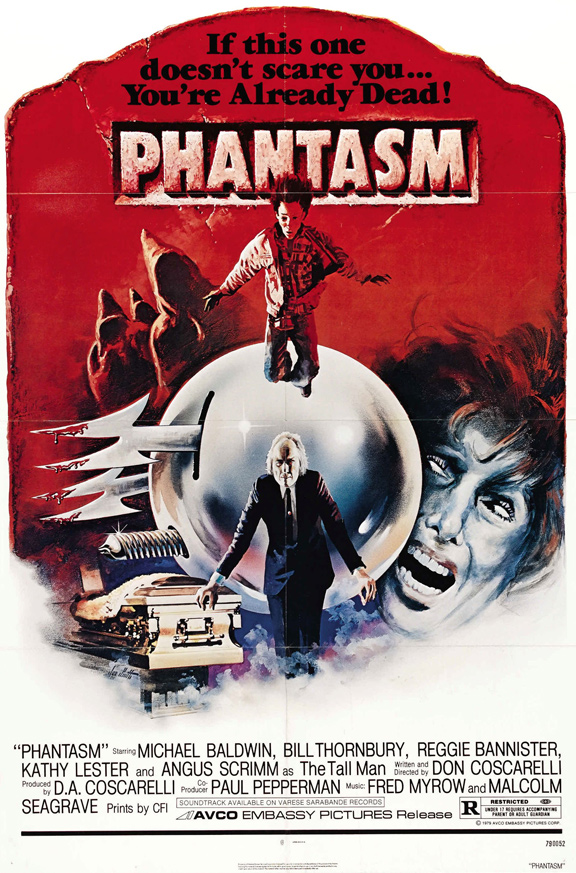
I can’t let you go today without asking whether there might be another Phantasm – maybe even with a Roger Avary script. How are things looking at the moment?
The Roger Avary script – unfortunately we could not do and I don’t think we’ll ever be able to do because it’s too immense in scope. It requires a huge budget and so I don’t think it’s realistic. Actors are still looking good – Angus Scrimm‘s in great shape, Reggie Bannister is in wonderful shape. We’ve been talking about putting together a fifth one. I thought part four would wrap the whole thing up. I’d go out to conventions and get a response just like yours, you know, where they keep going when’s the next one. It’s scary; I’ve created a narcotic here or something.



